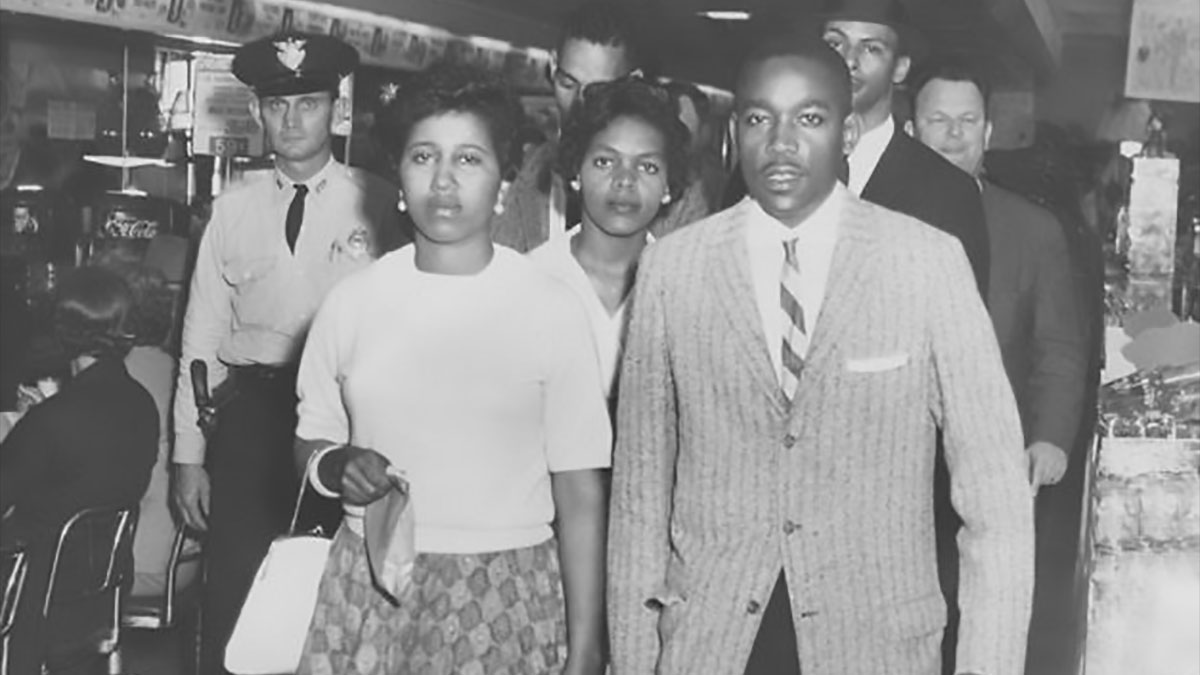
Dec. 11, 1961

The U.S. Supreme Court threw out the convictions of Black students arrested for taking part in a sit-in at the Kress Department Store in Baton Rouge. After the sit-ins in Greensboro, North Carolina, in 1960, the all-white Louisiana Board of Education warned that any student taking part in a sit-in would face “stern disciplinary action.”
Seven students at Southern University took that decision as an insult and headed to Kress’ lunch counter on March 28, 1960. Authorities jailed them, and nine other students took part in a sit-in, this one at Sitman’s lunch counter and the Greyhound bus station. They, too, were arrested, and 3,500 students marched through Baton Rouge to the State Capitol, where they protested and prayed.
Southern University’s president Felton Clark expelled 16 students that had taken part in the sit-ins, and the NAACP’s Thurgood Marshall began to represent them. The Kennedy administration filed a friend of the court brief backing the students. After the U.S. Supreme Court threw out the students’ convictions, more sit-ins and a mass demonstration took place, leading to the arrests of 23, including CORE Field Secretary Dave Dennis.
The next day, about 4,000 people, many of them students, marched from the university to the courthouse. The continued protests finally led to the desegregation of lunch counters in 1963. A half-century later, Southern University bestowed honorary degrees to the expelled students.

